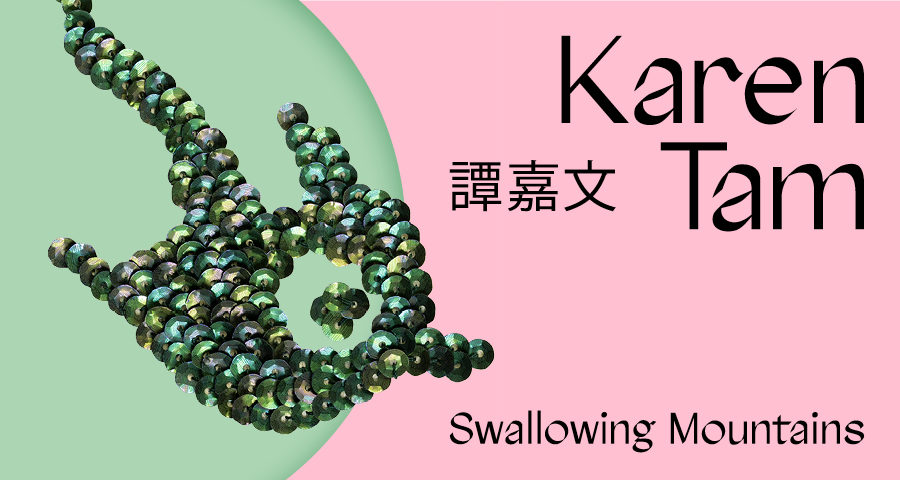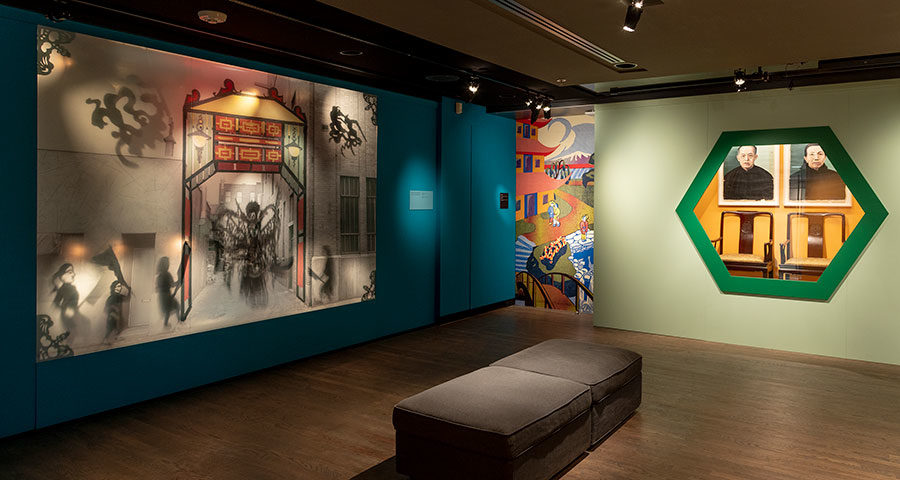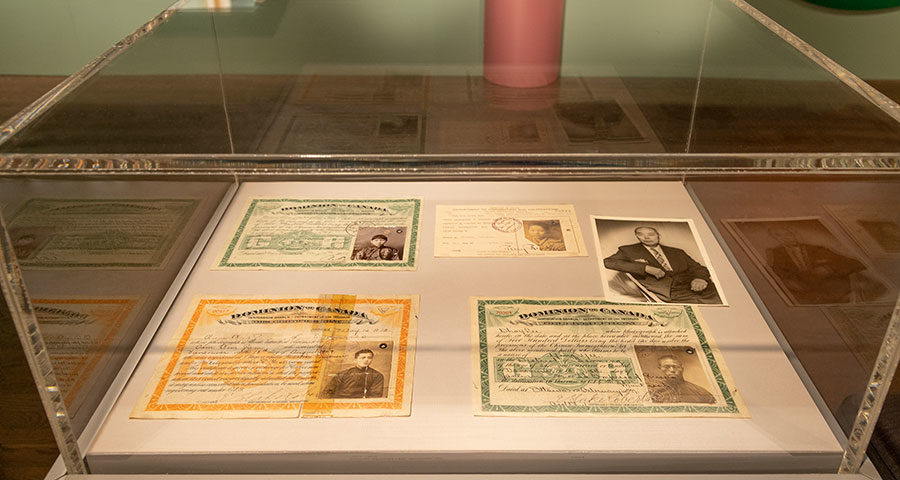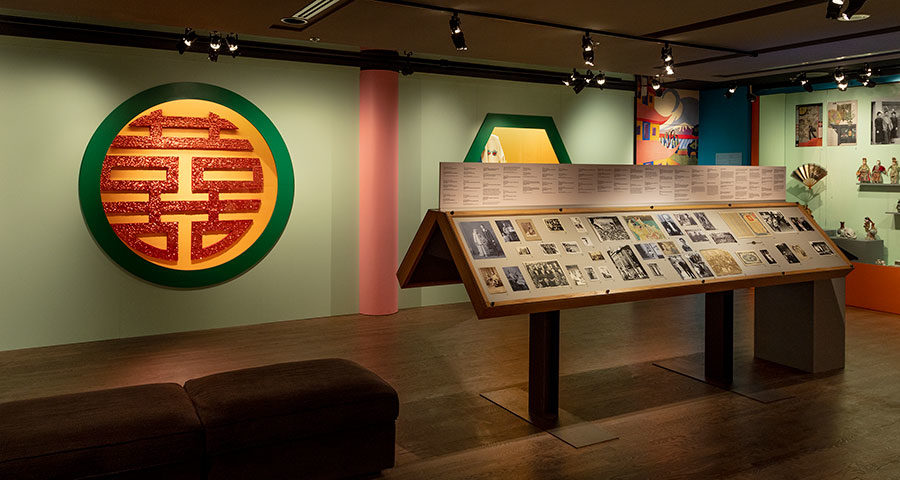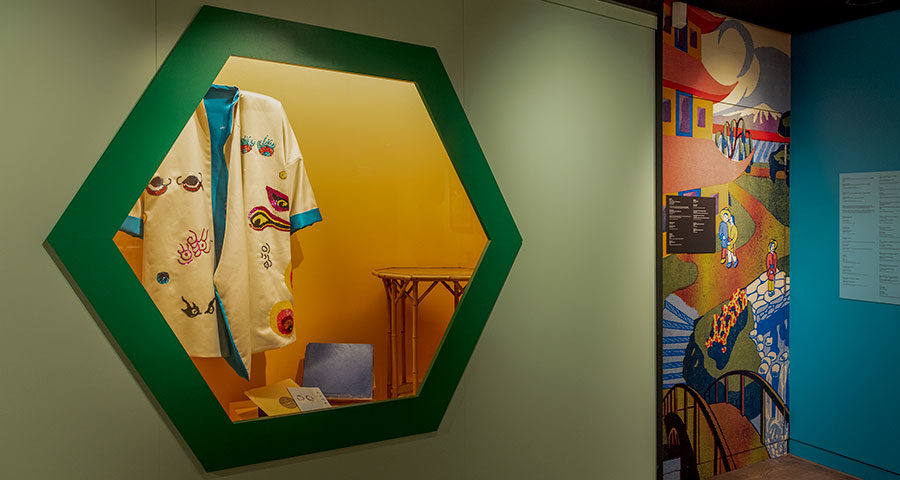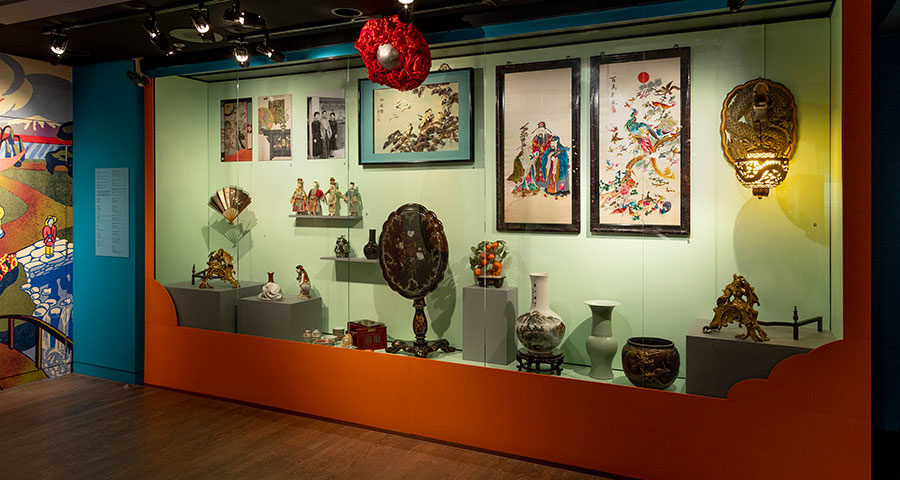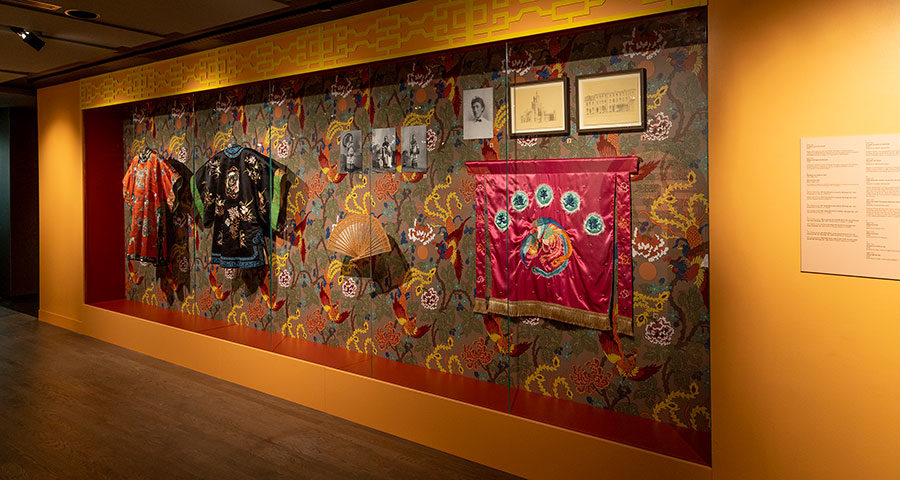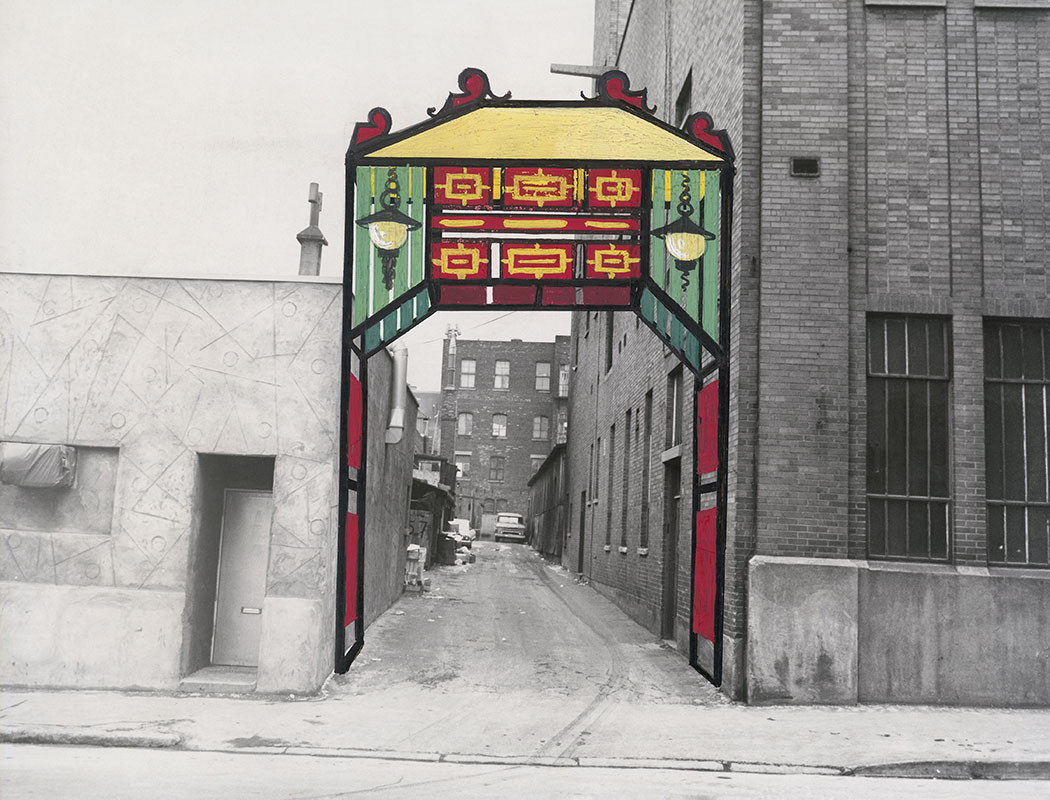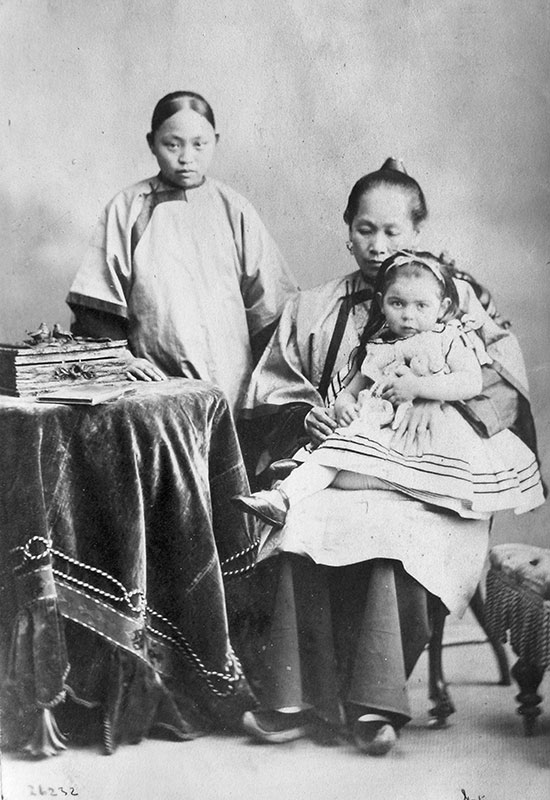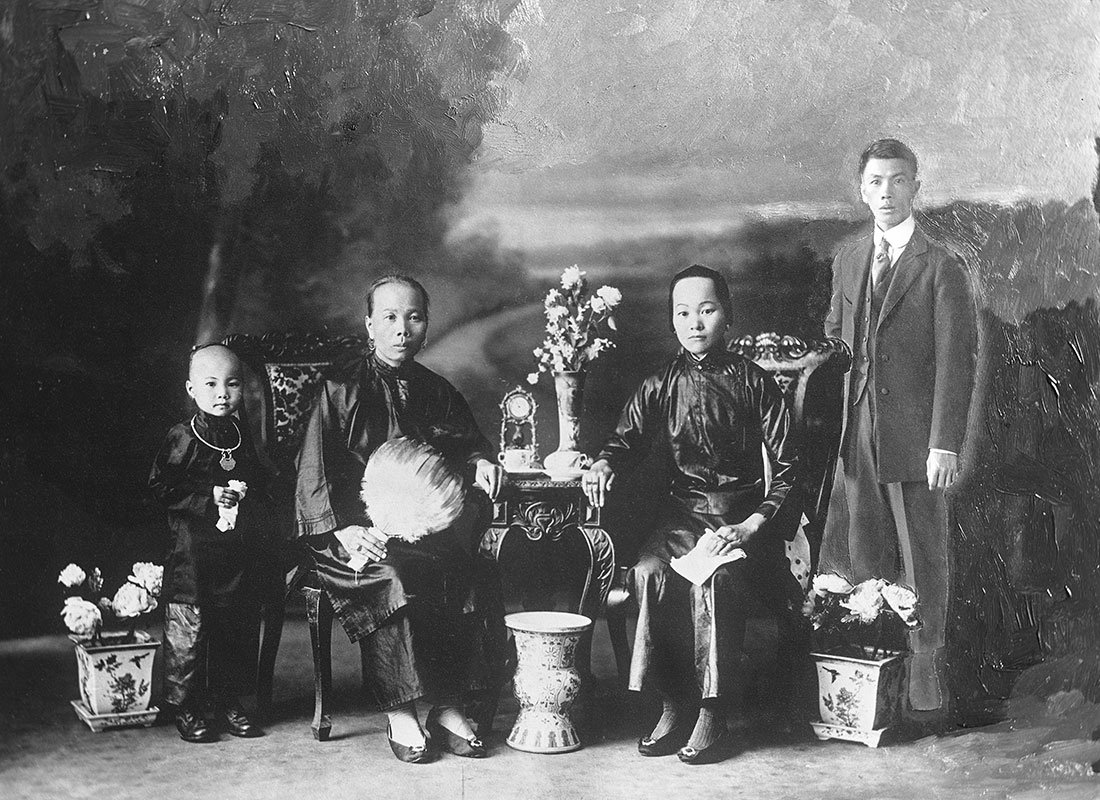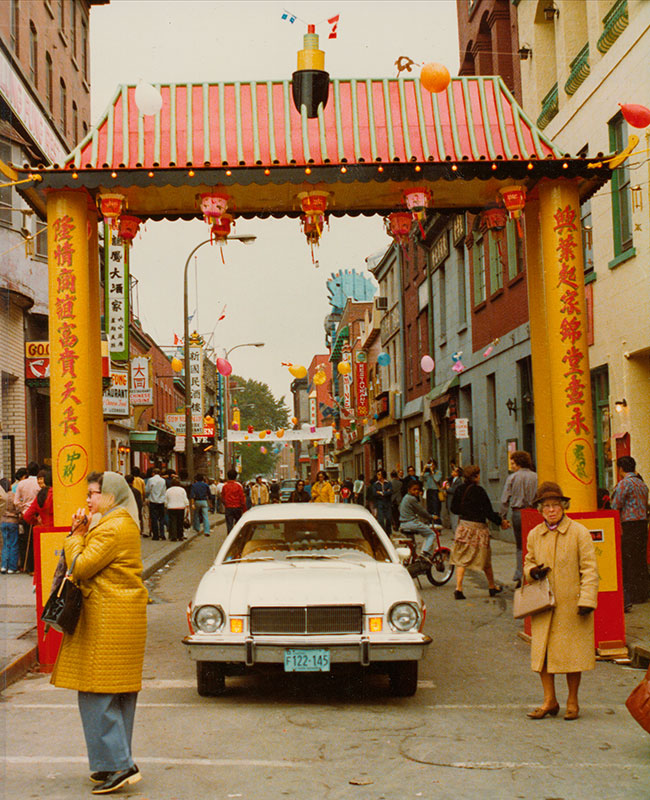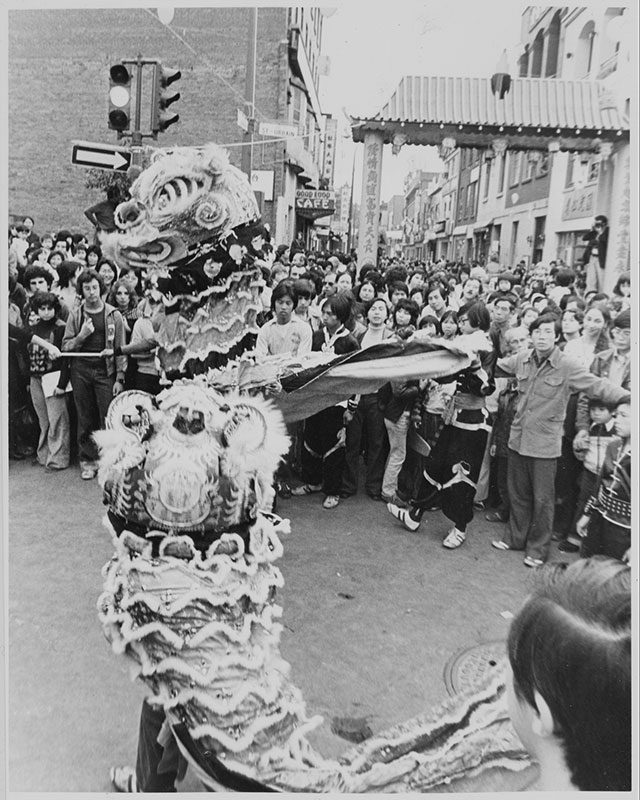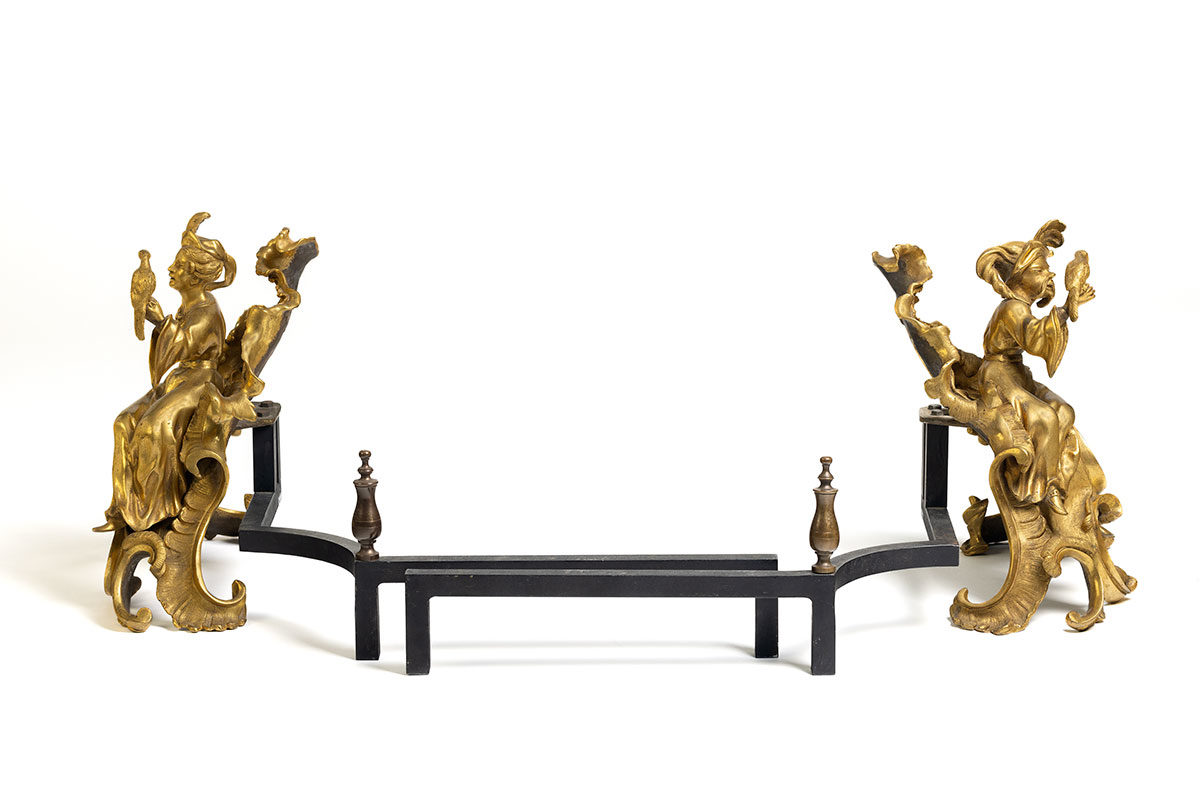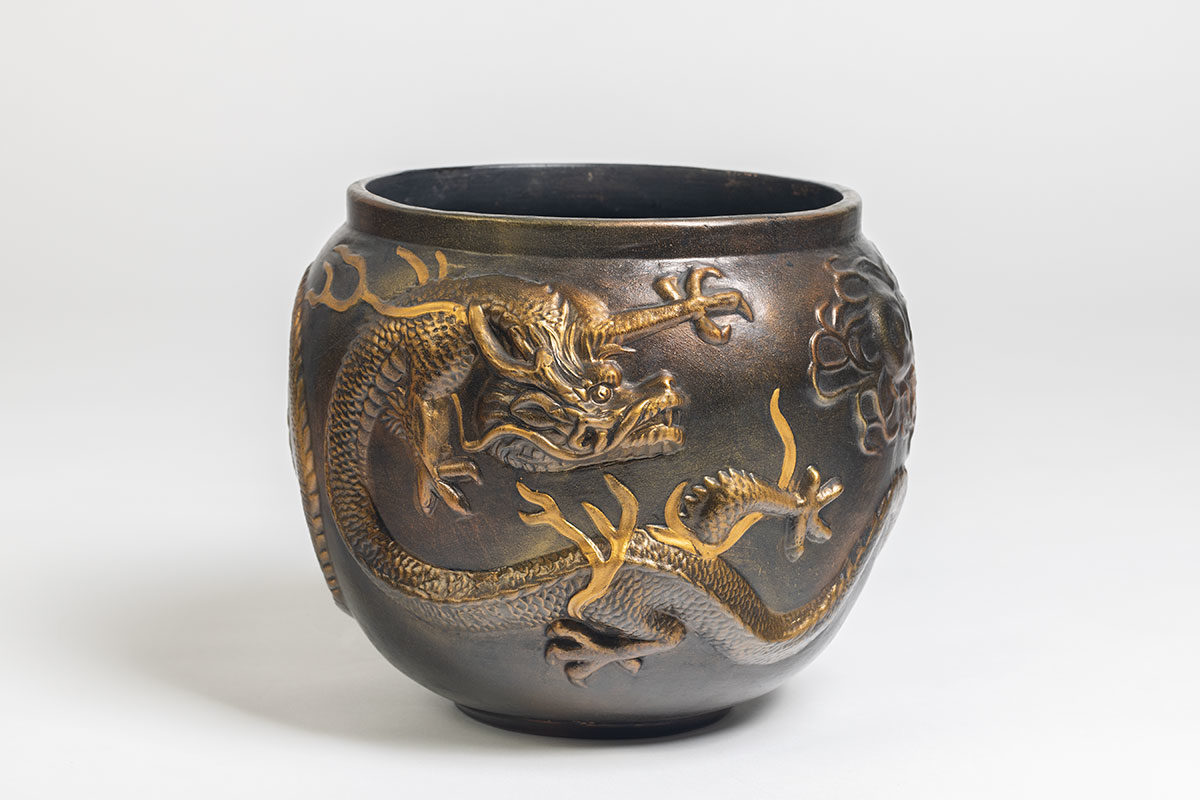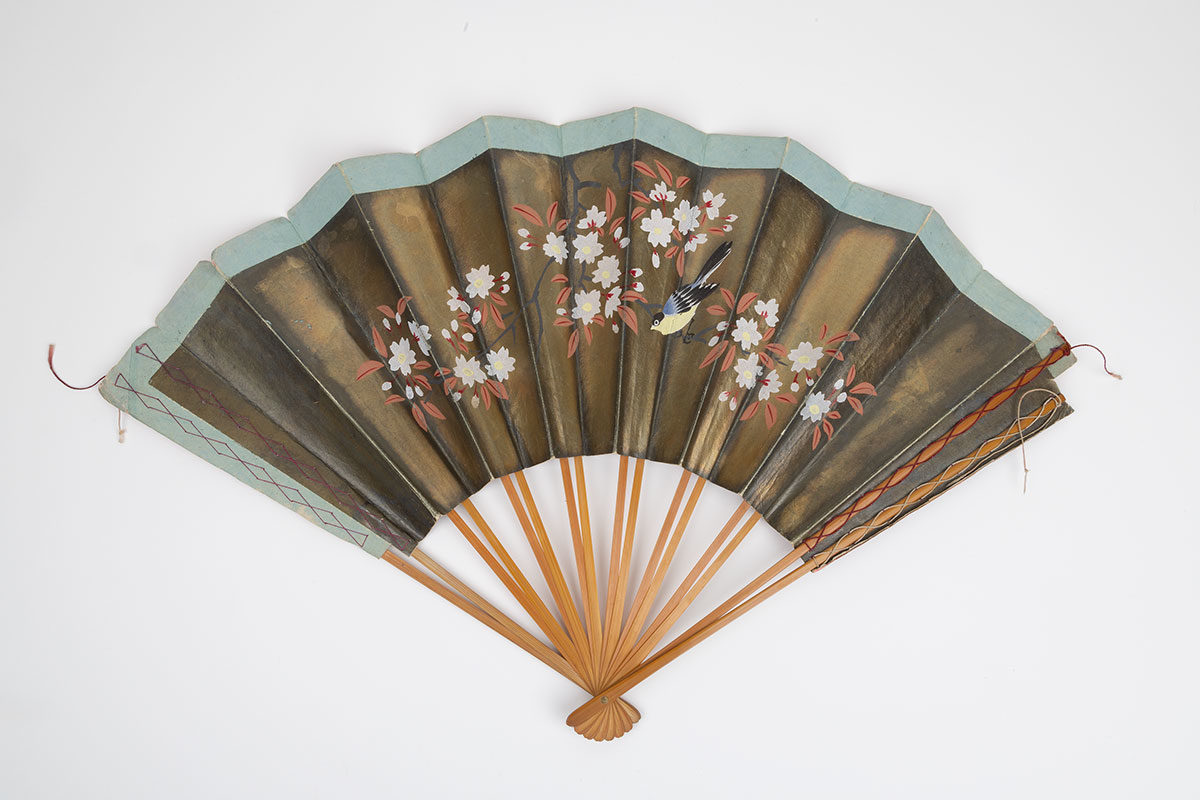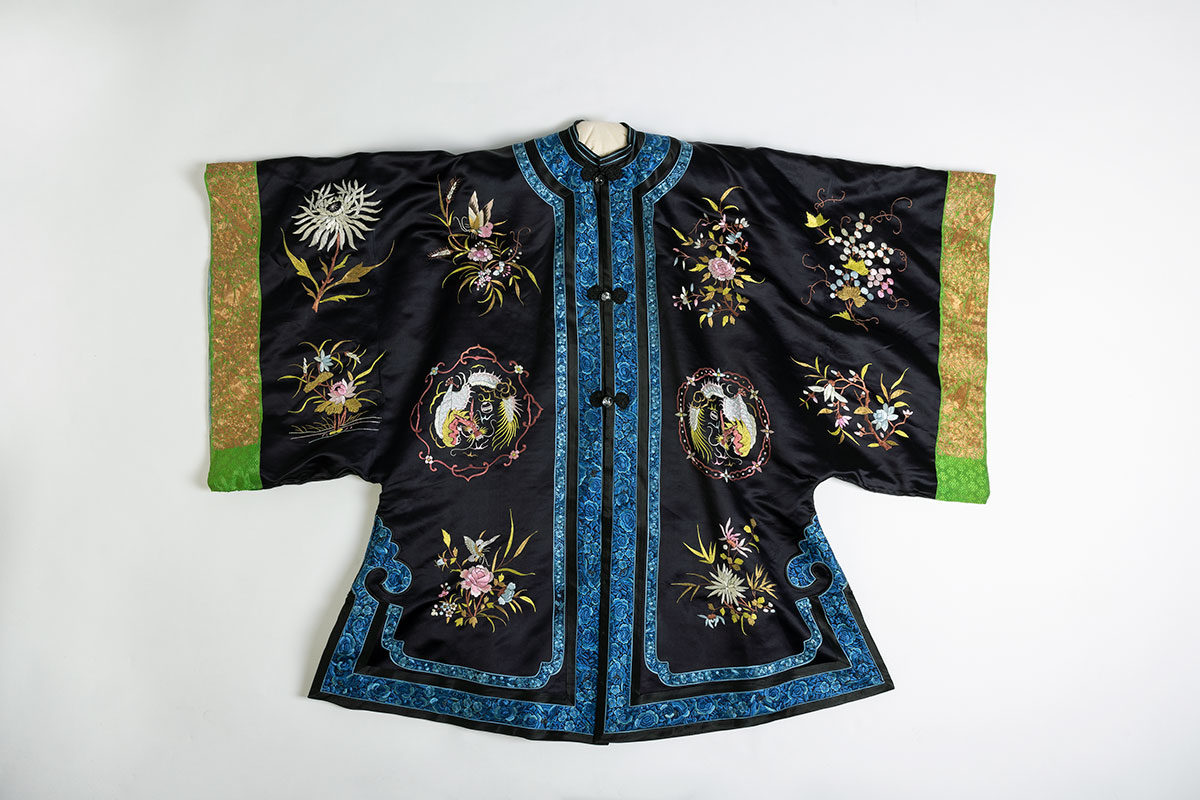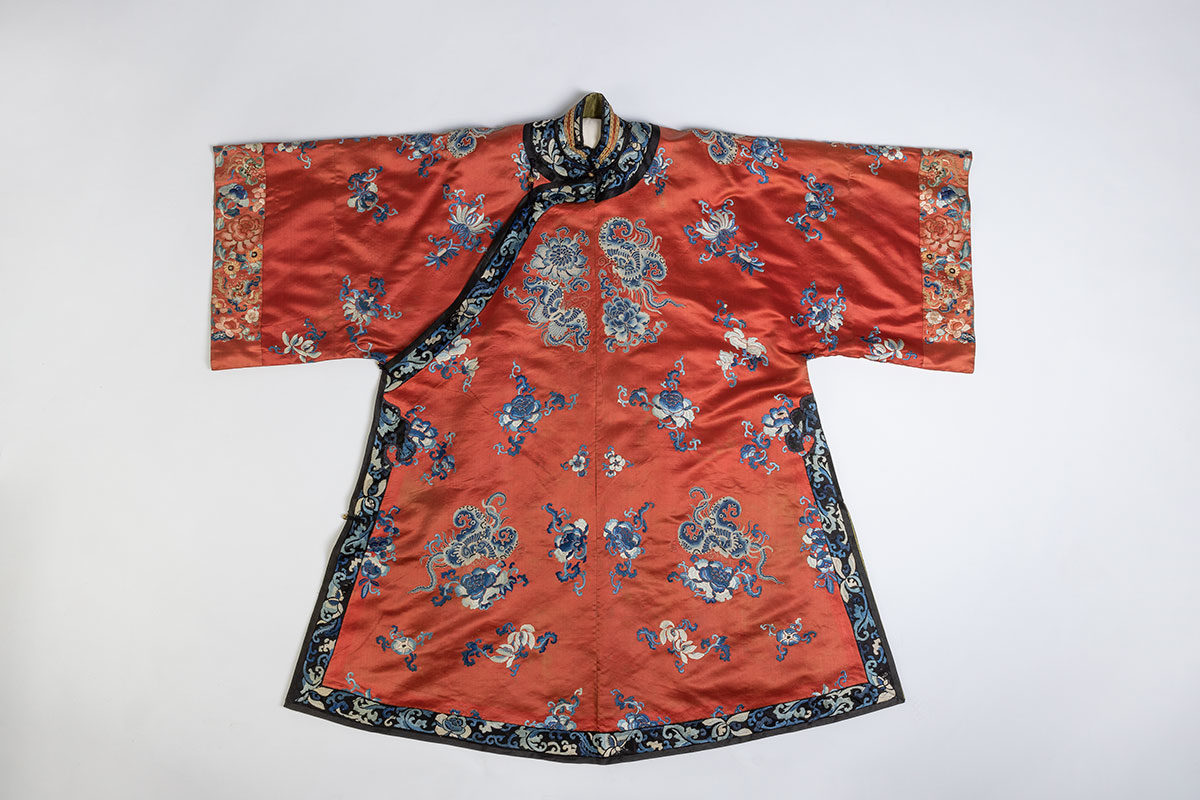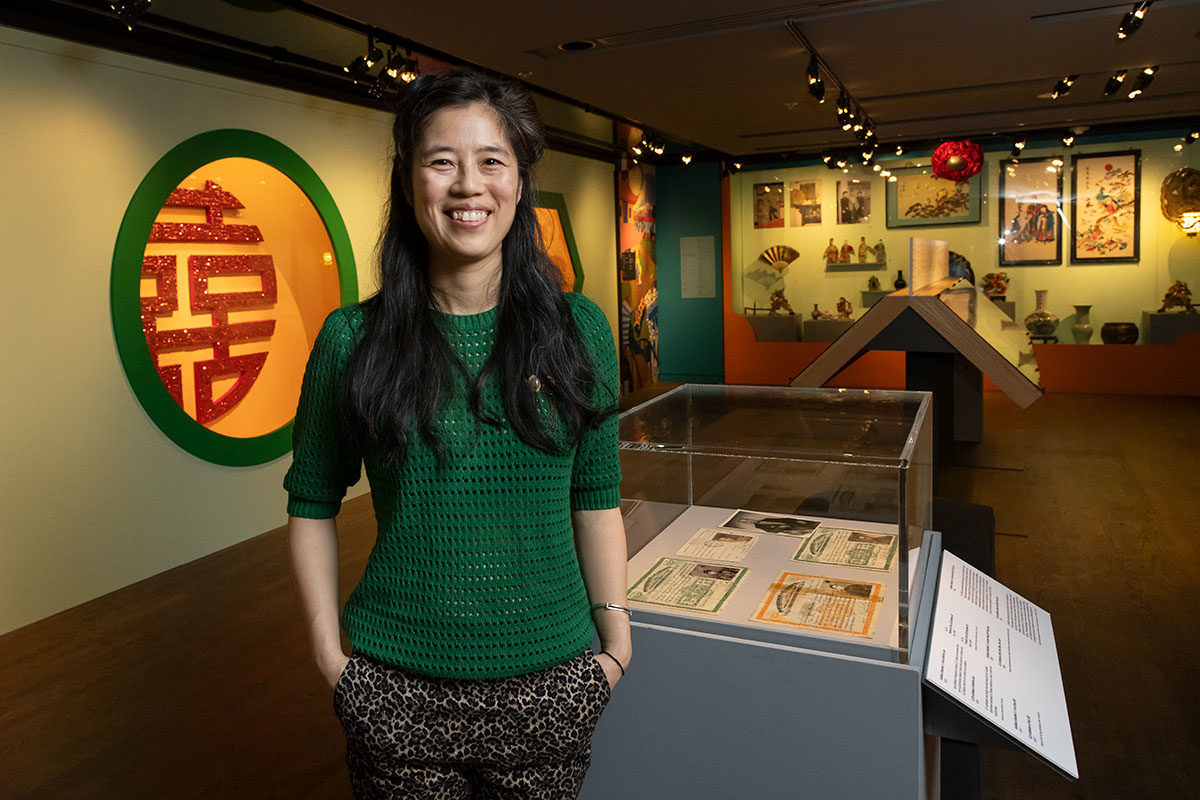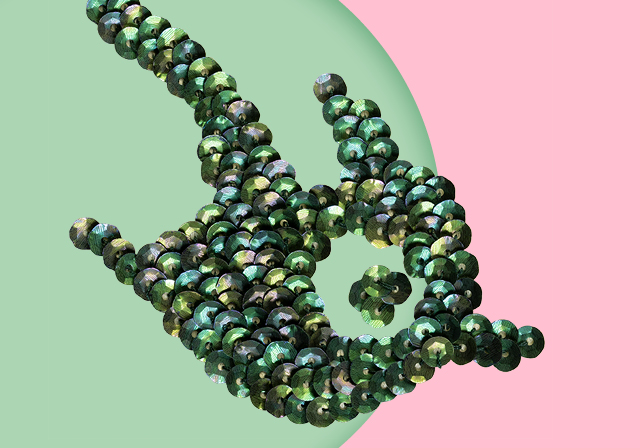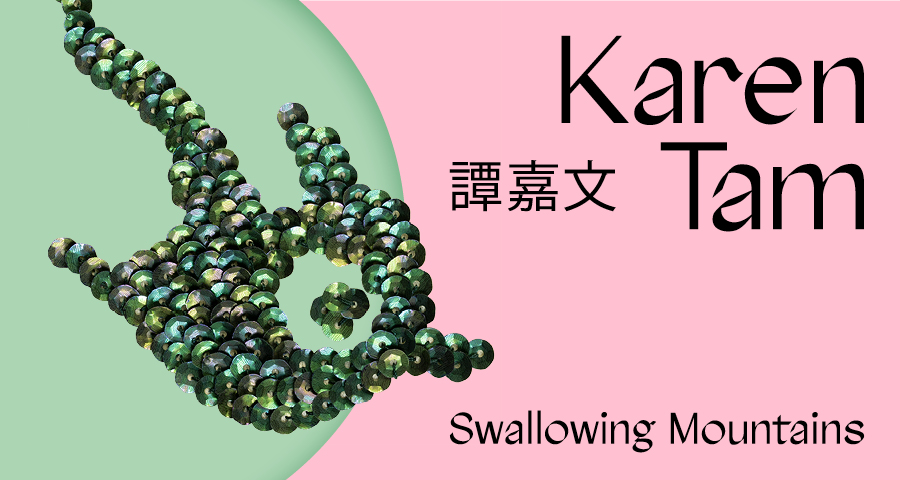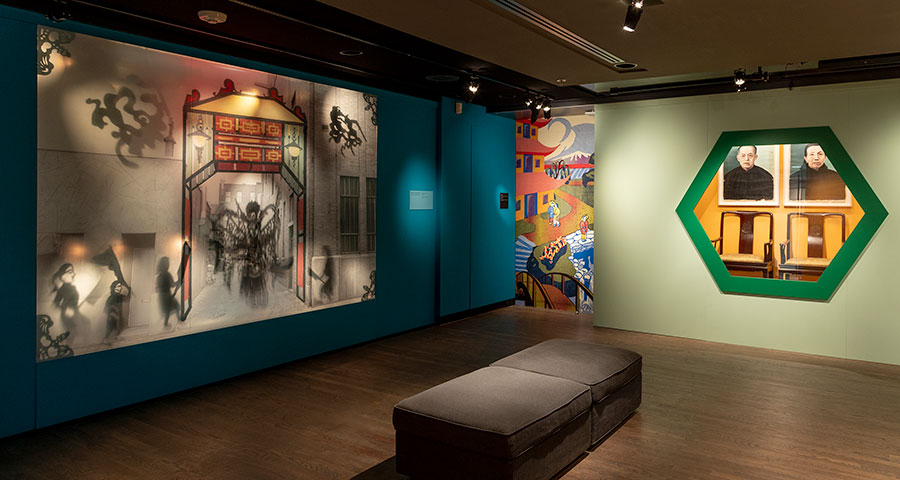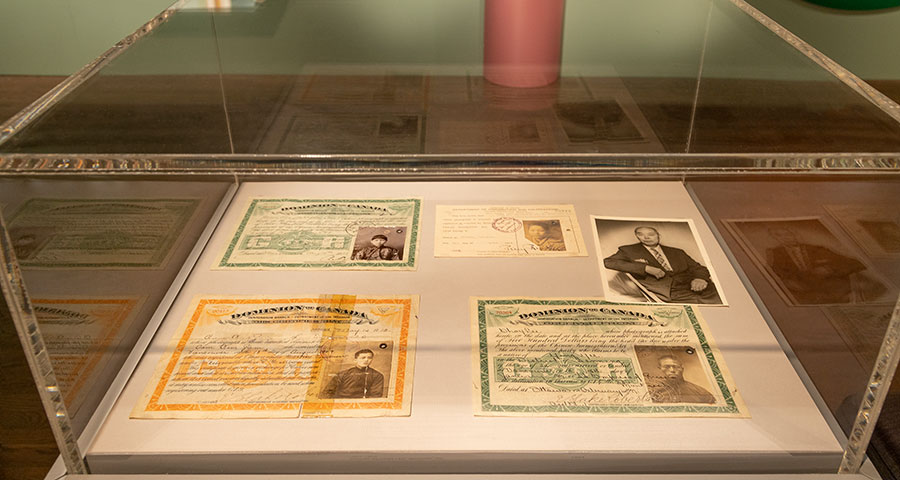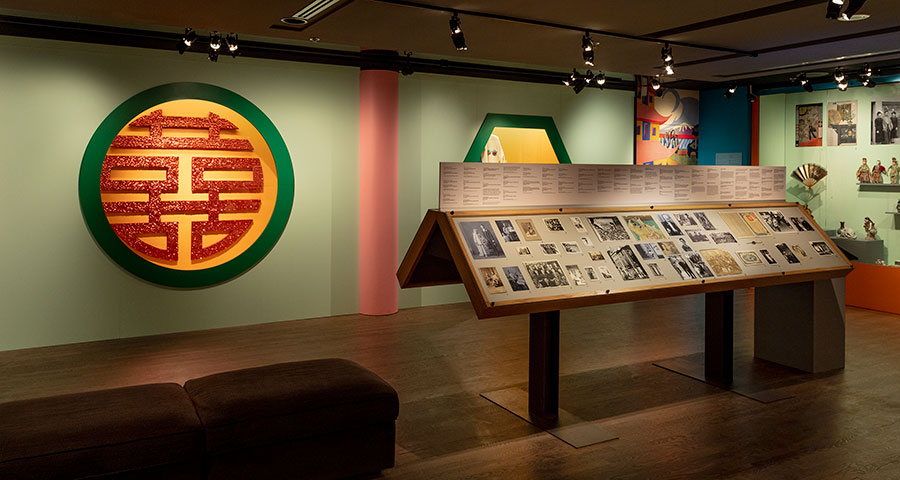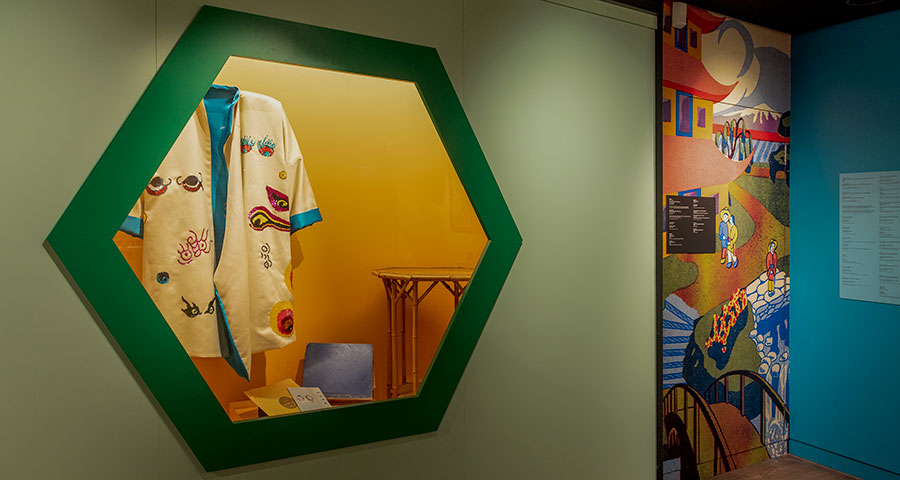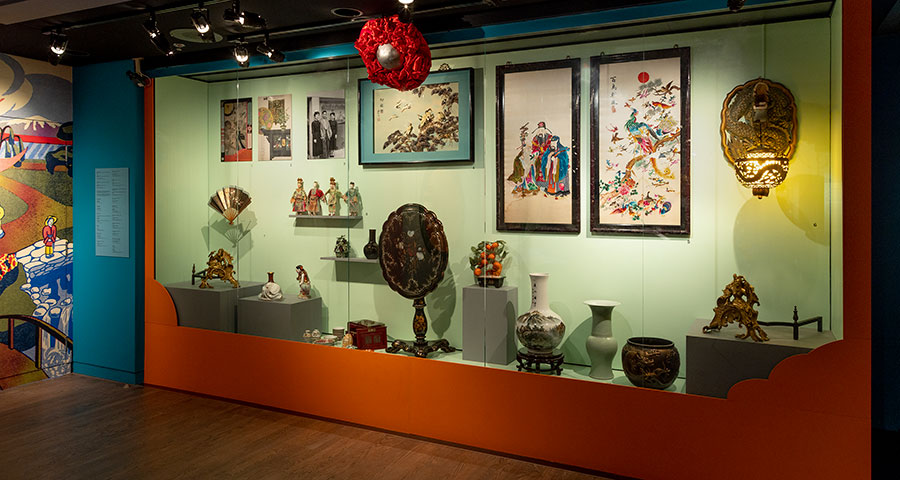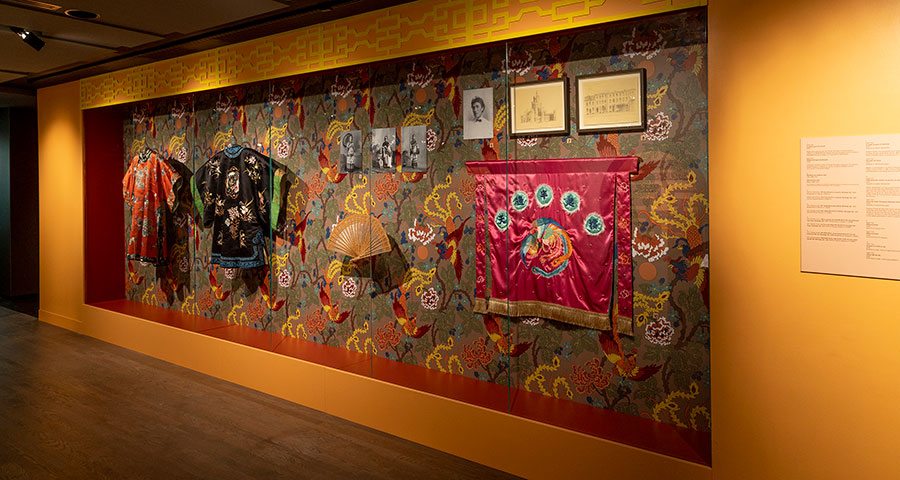News
February 15, 2023
Swallowing Mountains – Exhibition by Karen Tam, Artist-in-Residence
Communiqué de presse
A tribute to the women of Montreal’s Chinatown from the 19th to the 20th centuries
Montreal, February 15, 2023 – From February 17 to August 13, 2023, the McCord Stewart Museum presents – as part of its Artist-in-Residence program – the exhibition Swallowing Mountains by multidisciplinary artist Karen Tam. In an immersive installation made up of objects from the McCord Stewart Museum’s collection, works created by the artist, objects belonging to members of the Chinatown community, and photographs, the exhibition explores the relative silence in public records and historical accounts of women in Montreal’s Chinatown in the 19th and 20th centuries. The exhibition also explores the discrepancy between the historical attraction to chinoiserie and Japanisme and the reality of Chinese women living in Canada since the late 19th century.
2023 marks the 100th anniversary of the passage of the Chinese Immigration Act, which banned virtually all forms of Chinese immigration to Canada. This policy, combined with a head tax, led to a strong imbalance in the proportion of women within Chinese Canadian communities, who were prohibited from joining their husbands there. Despite their under-representation in the early 19th and 20th centuries, Chinese women’s contribution to Chinatown’s vitality and economy was considerable. Swallowing Mountains thus pays homage to the many contributions of women who have lived and worked in the neighborhood over the past century and a half.
Swallowing Mountains
The title of the exhibition refers to the name that the first waves of immigrants from China gave to Canada, Gold Mountain, in reference to the gold rush and the opportunity to make a fortune in Canada. Over time, the gold mountains of Canada’s El Dorado also became synonymous with the separation of families. Swallowing Mountains becomes a metaphor symbolizing the need to swallow, one kilometre at a time, the immense distance that separates loved ones in order to reunite them.
A space for contemplation and memory
For Karen Tam, the exhibition is also a means of shaping and reclaiming a Chinese space for the duration of its presentation. The exhibition’s alcoves, in which the artist has integrated her sculptures, Chinese shadow puppets, drawings and textile works, are like small installations reminiscent of the displays and decorations in Chinatown shop windows. The integration of Cantonese opera recordings, collected treasures, and photographs loaned by families, elders and people close to the Chinatown community aims to spark dialogue about the collections and to lay the groundwork for a future collection of Chinese archives in Montreal.
“The Museum is very pleased to present this exhibition, which reveals a little-known part of this community’s history, and which aligns with the Museum’s desire to amplify the voices of historically marginalized communities in Montreal and Quebec. The impressive research carried out by Karen Tam, who was able to bring together an important corpus of works and objects from our collections, allows the public to discover a generally overlooked aspect of our history,” says Pascale Grignon, Senior Director, Marketing, Culture and Inclusion.
“One of my main goals with this exhibition is to bring different communities into the space. Not just the Chinese diaspora, but other groups who will reflect on the hidden narratives of their own community, or the contributions women in their community have made to Montreal. And of course, there is also the idea of representation, of seeing yourself or your community represented in an institution like the McCord Stewart Museum. And that by going through your family albums, these could be the starting point for a larger-scale archival collection that I think is important to preserve and have, because it matters whose stories we tell and how we tell them,” says Karen Tam.
Biography of Karen Tam
Karen Tam is a Tiohtià:ke/Montreal-based artist and curator whose research focuses on the constructions and imaginations of cultures and communities through her installations in which she recreates Chinese restaurants, karaoke lounges, opium dens, curio shops and other sites of cultural encounters. Since 2000, she has exhibited her work and participated in residencies in North America, Europe and China, including at the Victoria and Albert Museum, He Xiangning Art Museum, and the Montreal Museum of Fine Arts. She has received grants and fellowships from the Canada Council for the Arts, the Conseil des arts du Québec, and the Social Sciences and Humanities Research Council of Canada. Karen Tam was the winner of the Prix Giverny Capital 2021 awarded by the Fondation Giverny pour l’art contemporain and was a finalist for the 2017 Prix Louis-Comtois, a finalist for the 2016 Prix en art actuel from the Musée national des beaux-arts de Québec, and long-listed for the 2010 and 2016 Sobey Art Award.
Karen Tam holds an MFA in Sculpture (School of the Art Institute of Chicago) and a PhD in Cultural Studies (Goldsmiths, University of London). She is the Adjunct Curator at Griffin Art Projects and is a contributor to the publication Asia Collections outside Asia: Questioning Artefacts, Cultures and Identities in the Museum (2020) edited by Iside Carbone and Helen Wang, and to Alison Hulme’s (ed.) book, The Changing Landscape of China’s Consumerism (2014). Her work is in private, corporate and museum collections in Canada, the United States, Ireland and the United Kingdom. She is represented by Galerie Hugues Charbonneau.
This year Karen Tam is preparing the launch of three publications: Whose Chinatown? Examining Chinatown Gazes in Art, Archives, and Collections published by Griffin Arts Projects, With wings like clouds hung from the sky co-published by Richmond Art Gallery, The Art Gallery of Greater Victoria, Varley Art Gallery, and SHEEN-wah-ZREE edited by Ariane de Blois, co-published by Plein Sud, Contemporary Art Exhibition Center in Longueuil, and EXPRESSION Exhibition Centre in Saint-Hyacinthe.
Artist-in-Residence program
The Artist-in-Residence program invites artists to take a critical and conceptual look at the McCord Stewart Museum’s collection, reflecting on the connections between their artistic practice and the objects and stories they uncover during their research. As part of this research-oriented creative activity, artists are encouraged to communicate their own interpretation of the collection and propose new ways of interpreting history in its many forms.
Credits
An exhibition created by the McCord Stewart Museum.
Artist : Karen Tam
Curator: Guislaine Lemay, Curator, Material Culture, McCord Stewart Museum
Project manager: Caroline Truchon, McCord Stewart Museum
Graphic design: David Martin
Download the documents
Press release (PDF)
Press release (WORD)
Press images
Activities related to the exhibition
Cultural Reappropriation and Identity Construction Among Immigrants and Adoptees from China – Community Conversation
Sunday, April 2, from 1:30 to 3 p.m. – Free – At the Museum
An Laurence, Tong Zhou Lafrance and Corinne Beaumier, three Chinese adoptee artists, invite you to participate in a discussion on cultural reappropriation and identity construction within the adoptee community and the Chinese diaspora. Intercountry adoption is also a form of migration. What do immigrants and transnational adoptees share in their search for identity? The discussion workshop will be a place to share knowledge, views and experiences regarding access to Chinese cultural and historical baggage in Montreal.
The activity will be moderated in French. Audience discussion will be in French and English.
Space limited, no reservation. Sign up on the day of the event at the Museum admissions desk.
Big Fight in Little Chinatown – Screening
Wednesday, April 5, from 6 to 8:30 p.m. – Free – At the Museum (In French, subtitled in English)
As part of the exhibition Swallowing Mountains by Karen Tam, the McCord Stewart Museum invites the public to attend the screening of the documentary Big Fight in Little Chinatown (2022), by filmmaker Karen Cho.
The screening will be followed by a conversation in English between Karen Cho, director of the documentary, and Karen Tam, Artist-in-Residence at the McCord Stewart Museum, and a public Q&A.
Space is limited, reservation required on the Museum’s website.
Creation and Social Reflection Workshop with Artist Karen Tam
Saturday, July 8, at 1 and 4 p.m. – Free – Urban Forest
The public is invited to take part in a workshop inspired by Karen Tam’s work Wishing Tree (2021) and to adorn the Urban Forest installation with their creation, guided by the artistic advice and social reflections of multidisciplinary artist Karen Tam.
Access to the activity is free.
Looking After Our Stories in Montreal/Tiohtià:ke
Every Sunday from 11 a.m. to 3:45 p.m. – Free – At the Museum
In this civic engagement workshop, created in collaboration with Je suis Montréal, participants will lend an ear to the too often untold stories of Chinese, Afro-descendant and Indigenous communities. Looking at photographs of 19th and 20th century Montreal from the McCord Stewart Museum’s Photography collection, participants will reflect on the presence or absence of objects and people that support their wellbeing in Montreal. Their reflection will be facilitated by a bank of magnetic images to juxtapose with these cityscapes, which they will contribute to over the sessions. Each person will share their vision of a Montreal that they consider welcoming to them, while exploring and taking inspiration from others’.
The activity is presented in French and English and is suitable for all ages.
This project is funded by the Ministère de l’Immigration, de la Francisation et de l’Intégration and the Ville de Montréal (Montréal Interculturel program).
The McCord Stewart Museum
About
The McCord Stewart Museum celebrates life in Montreal, its people and communities, past and present. Reaching beyond the city to the wider world, the Museum creates and presents engaging exhibitions, educational programming and cultural activities with a critical and inclusive take on social history. Its collections of Archives, Documentary Art, Dress, Fashion and Textiles, Indigenous Cultures, Material Culture and Photography comprise 200, 000 objects and works of art, 2.15 million photographs, 3,500 rare books and 340 linear metres of textual archives. The McCord Stewart Museum: Our People, Our Stories.
Opening hours and admission fees
Opening hours
Regular schedule – until June 25
Tuesday, Thursday and Friday from 10 a.m. to 6 p.m. | Wednesday from 10 a.m. to 9 p.m. | Saturday and Sunday from 10 a.m. to 5 p.m.
Summer schedule – From June 26 to September 4
Monday, Tuesday, Thursday and Friday from 10 a.m. to 6 p.m. | Wednesday from 10 a.m. to 9 p.m. | Saturday and Sunday from 10 a.m. to 5 p.m.
Holiday hours:
Spring Break – Monday, February 27: 10 a.m. to 6 p.m.
Easter Monday – Monday, April 10: 10 a.m. to 6 p.m.
Victoria Day – Monday, May 22: 10 a.m. to 6 p.m.
Saint-Jean-Baptiste Day – Saturday, June 24 10 a.m. to 6 p.m.
Canada Day – Saturday, July 1 10 a.m. to 6 p.m.
Tarifs
Rates until March 31:
Adults: $19 | Seniors: $17 | Students (18 to 30): $14 | 17 and under: free | Indigenous persons: free
Wednesday evening: free (Swallowing Mountains exhibition and permanent exhibition) or $9.50 (2nd floor exhibitions)
From April 1:
Adults: $20 | Seniors: $19 | Students (18 to 30): $15 | 17 and under: free | Indigenous persons: free
Family deal: $50 – fixed rate for 2 adults and two teenagers| 12 and under: free
Wednesday evening: free (Swallowing Mountains exhibition and permanent exhibition) or $10 (2nd floor exhibitions)
First Sunday of the month: free for Quebec residents.
To create the best possible experience for everyone, it is necessary to reserve tickets online for the Museum and activities. Go to the Admissions page on the Museum’s website.
The McCord Stewart Museum would like to thank BMO Financial Group for the free Wednesday evenings, and the Fondation J.A. DeSève for free admission for children 12 and under.
COVID-19 : Measures for a safe visit
The Museum respects the health measures recommended by the public health authorities. To see the measures in effect during your visit, go to the Museum’s website.

